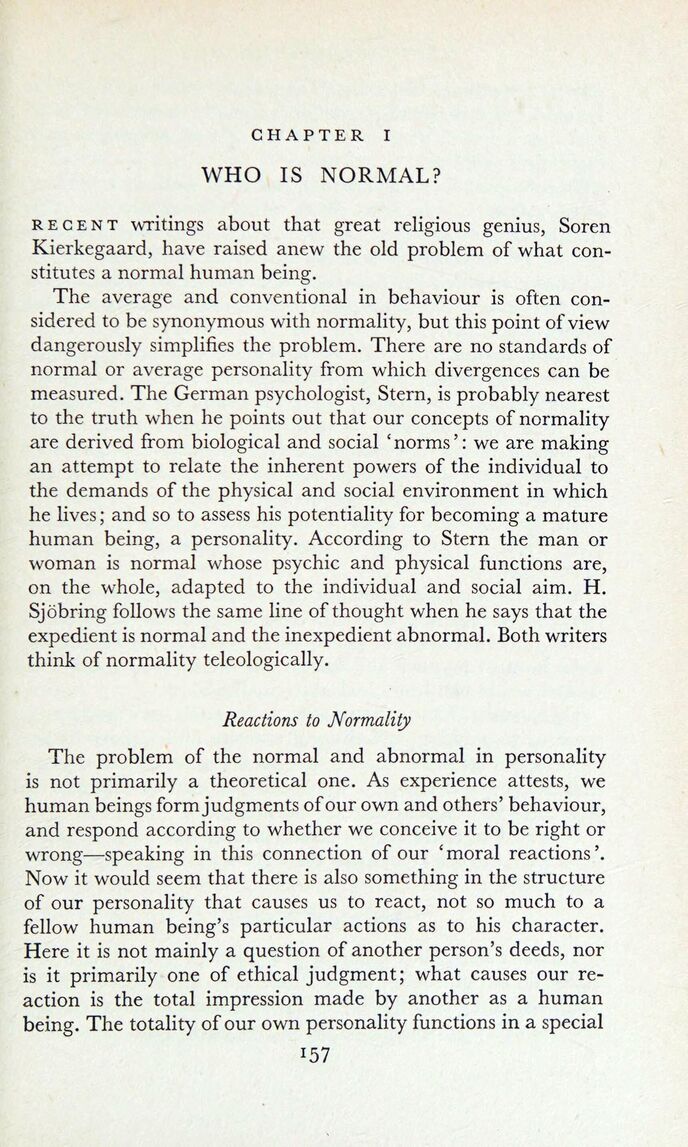
Full resolution (JPEG) - On this page / på denna sida - Part 5. Symptomatic Religiosity in Neurosis and Insanity - 1. Who Is Normal? - Reactions to Normality

<< prev. page << föreg. sida << >> nästa sida >> next page >>
Below is the raw OCR text
from the above scanned image.
Do you see an error? Proofread the page now!
Här nedan syns maskintolkade texten från faksimilbilden ovan.
Ser du något fel? Korrekturläs sidan nu!
This page has never been proofread. / Denna sida har aldrig korrekturlästs.
CHAPTER I
WHO IS NORMAL?
RECENT writings about that great religious genius, Soren
Kierkegaard, have raised anew the old problem of what
constitutes a normal human being.
The average and conventional in behaviour is often
considered to be synonymous with normality, but this point of view
dangerously simplifies the problem. There are no standards of
normal or average personality from which divergences can be
measured. The German psychologist, Stern, is probably nearest
to the truth when he points out that our concepts of normality
are derived from biological and social ‘norms’: we are making
an attempt to relate the inherent powers of the individual to
the demands of the physical and social environment in which
he lives; and so to assess his potentiality for becoming a mature
human being, a personality. According to Stern the man or
woman is normal whose psychic and physical functions are,
on the whole, adapted to the individual and social aim. H.
Sjobring follows the same line of thought when he says that the
expedient is normal and the inexpedient abnormal. Both writers
think of normality teleologically.
Reactions to Normality
The problem of the normal and abnormal in personality
is not primarily a theoretical one. As experience attests, we
human beings form judgments of our own and others’ behaviour,
and respond according to whether we conceive it to be right or
wrong—speaking in this connection of our ‘moral reactions’.
Now it would seem that there is also something in the structure
of our personality that causes us to react, not so much to a
fellow human being’s particular actions as to his character.
Here it is not mainly a question of another person’s deeds, nor
is it primarily one of ethical judgment; what causes our
reaction is the total impression made by another as a human
being. The totality of our own personality functions in a special
157
<< prev. page << föreg. sida << >> nästa sida >> next page >>